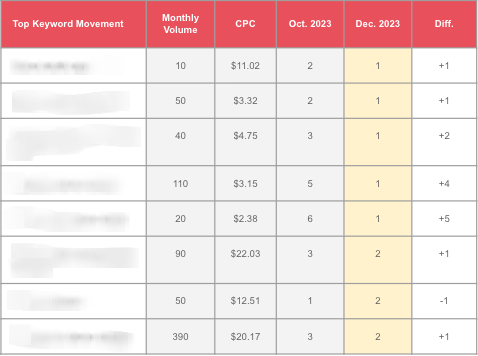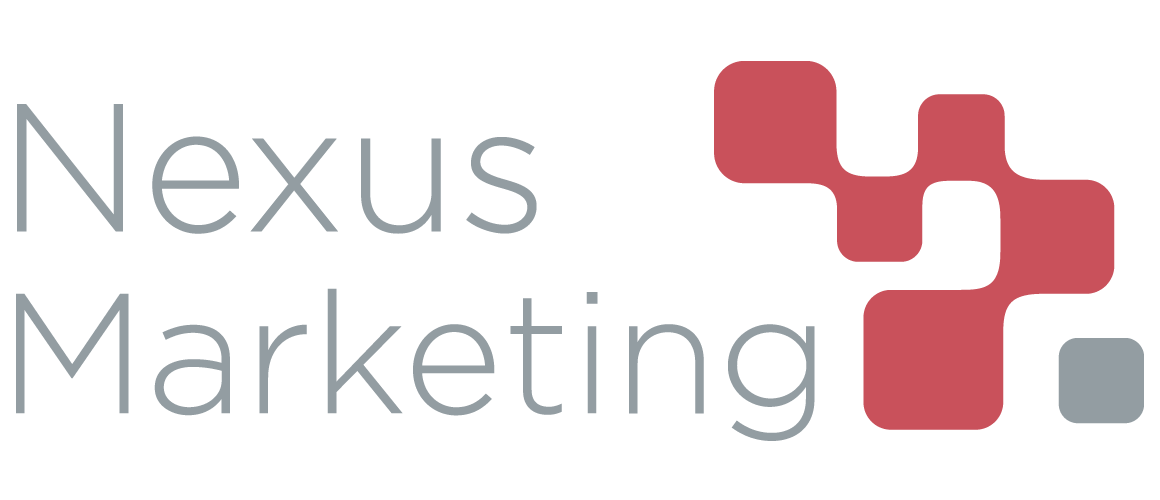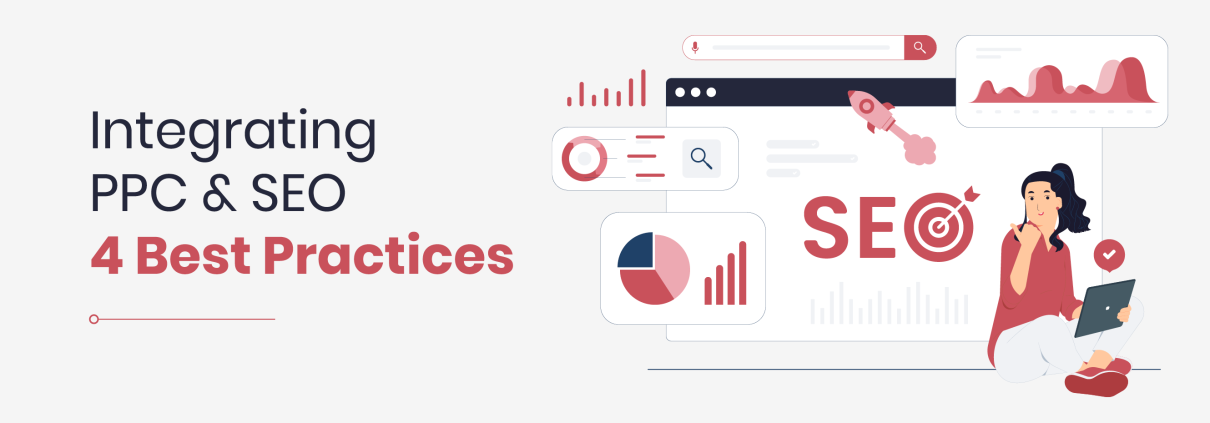4 Best Practices for Integrating Pay Per Click (PPC) & SEO Campaigns
The synergy between Pay-Per-Click (PPC) advertising and Search Engine Optimization (SEO) is invaluable, especially for demand generation. The right combination of outbound and inbound strategies can help your business build a robust online marketing journey that reaches and converts more visitors.
However, many businesses tend to treat these channels as silos. While the goals of your PPC and SEO efforts differ in many ways, it’s important to remember that they can and should support one another.
Here are the top four practices we recommend for integrating your PPC and SEO strategies:
1. Quarterly Insights Sharing
To maximize the value that each channel can bring to the other, you need data and visibility.
The best way to start doing this is to share and analyze your PPC data on a quarterly basis. Review your PPC campaigns to identify your most impactful keywords, measured by:
- Return on ad spend (ROAS)
- Total expenditure
For example, a nonprofit tech provider might discover that “nonprofit CRM software” is driving considerable PPC conversions and generating strong returns, and “best fundraising software” is driving a moderate number of conversions at a high cost.
By identifying your highest-return and most costly keywords, you can shape your SEO strategy for the coming quarters. Review your SEO efforts—have you actively targeted either of these keywords with blog content and link-building? If not, you’re missing opportunities to maximize ownership over these terms.
Appearing in PPC and top organic positions for your high-return keywords will put your brand front and center for a proven valuable audience.
2. Targeting & Budgeting for High-Value Keywords
When you know your highest-value PPC keywords, you can build a strategy to organically rank for them. This approach brings a few valuable benefits:
- Maximized visibility for high-value keywords and to audiences proven to convert
- Reduced drawbacks of reallocating ad spend away from your highest-cost keywords
- Overall enhanced SEO performance for your website
Let’s look specifically at the idea of using these cross-channel insights to help you spend your ad budget more effectively.
For example, if “online donation tools for nonprofits” is a top PPC keyword for your business, developing SEO-rich content to target this term will capture organic traffic, potentially decreasing the need for paid ads. Consider these statistics:
- Click-through rates (CTR) on paid search ads average around 2%.
- The first organic result on a search results page has an average CTR of 31.7%.
- However, paid search visitors are 35% more likely to convert than organic visitors on average.
It’s a careful trade-off to make, but in many cases and for many keywords, ranking highly on organic results can save you a lot of money while growing your website’s traffic.
However, you can only benefit from this approach if you actively track and compare performance between channels. This doesn’t have to be anything fancy—a basic spreadsheet will do—but it does need to be an intentional, repeated process. Here’s an example:

This table rounds up the most relevant information about keyword volume, CPC, and organic ranking movements. Analyze this information against your PPC conversion data, and you can lay out a savvy SEO roadmap for your business.
Want some inspiration? Check out how we report organic SEO and conversion data at Nexus Marketing.
3. Landing Page Strategy Segmentation
Creating separate landing pages for PPC and SEO efforts is critical for accurate measurement and optimization.
For PPC, landing pages should be highly tailored to the ad copy, offering a direct and conversion-optimized path for paid traffic. Get your pages in front of the right visitors with Google’s audience targeting features, then convert them with your excellent landing page strategies—this is what explains the high average PPC conversion rate cited above.
For SEO, content-rich pages that provide in-depth information about the target keyword can attract organic visitors, improving the site’s authority and relevance for these key terms. Then, careful consideration of the keyword’s user intent and other contextual elements can help you develop an effective organic conversion strategy for the page.
At Nexus Marketing, we keep conversion strategies front of mind when creating content for clients. We think through:
- Ideal “next step” asks based on the keyword’s context and sales funnel position
- Ideal call to action (CTA) placement and language
- Effective introduction strategies to ensure visitors don’t bounce away before being asked to convert
- Other UX and design elements that will contribute to conversions by increasing time on page
- Technical SEO elements that contribute to page load speed
What other elements go into high-performing SEO content? We’ve rounded them up here.
4. Testing & Experimentation
Cross-channel analysis helps with more than just broadly guiding your organic keyword strategy. PPC insights can help you test, experiment, and improve your digital marketing efforts at a more granular level, too.
Review your PPC data to quickly identify:
- Your highest-performing ad copy
- Your most effective calls to action
- Your highest-converting landing pages
Dig into these ads, CTAs, pages, and the strategies they use to connect with their audiences. Learn from them.
For example, you could echo the language from your top PPC ad in the calls to action on your organic pages that target similar keywords and audiences to improve their conversion rates.
Plus, this approach works both ways. Learn from your top-converting SEO pages to fine-tune your PPC ads targeting similar keywords. PPC offers immediate data, allowing for rapid experimentation and optimization.
For businesses, the strategic integration of PPC and SEO is not just about improving search rankings; it’s about creating a more cohesive and cost-effective online marketing strategy.
Remember, these channels can and should support one another. Start implementing these best practices in your campaigns and data review processes, keep learning more, and let us know how it goes!
Have any questions or want to learn more about Nexus Marketing’s SEO services and other digital marketing opportunities? Please get in touch—we’d love to hear from you.





